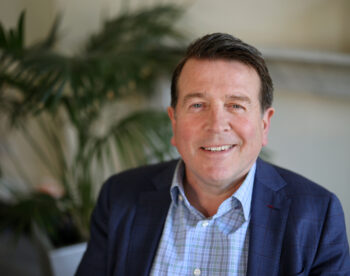Apparently Baroness Philippa Stroud earns £530.96 a day for Chairing the Low Pay Commission, whose (ironic) function is to decide what the UK’s minimum wage and living wage should be, writes David Little, a partner in our Corporate and Commercial Law team.
That set me thinking about the disparities between the rich and the poor. In a world where wealth seems to accumulate at an exponential rate for some, while others struggle to make ends meet, the chasm between the richest and the poorest continues to widen. This growing chasm is not merely a statistical anomaly but a stark reality that reflects the unequal distribution of resources and opportunities across the globe.
At the summit of this economic hierarchy sits a select few individuals whose wealth dwarfs that of entire nations. One name that often comes to mind when discussing extreme wealth is Elon Musk, the founder of Tesla. According to Forbes he is currently the world’s richest person with a net worth of approximately £150 billion.
To comprehend the scale of wealth possessed by Musk, just consider that if he spent £10,000 a day it would take him 411,000 years, assuming that none of his capital was reinvested. It would be practically impossible to spend £1 billion on yourself although Mike Tyson, now bankrupt, gave it a good go, apparently spending £350 million in a decade. The tigers only cost £10,000 a month.
 On the other end of the spectrum, billions of people around the world struggle to survive on incomes that barely cover their basic needs. One crucial indicator of economic well-being is the minimum wage, which varies significantly from one country to another. In most European countries, the average minimum wage provides a modest standard of living but falls short of addressing the rising costs of housing, healthcare, and education.
On the other end of the spectrum, billions of people around the world struggle to survive on incomes that barely cover their basic needs. One crucial indicator of economic well-being is the minimum wage, which varies significantly from one country to another. In most European countries, the average minimum wage provides a modest standard of living but falls short of addressing the rising costs of housing, healthcare, and education.
For instance, in France the minimum hourly wage is £9.66, in Germany it’s £10.66. Does that seem reasonable at first glance? It’s essential to recognize that the cost of living in these countries is considerably higher than in many other parts of the world. Moreover, the minimum wage often fails to keep pace with inflation, exacerbating the financial challenges faced by low-income workers.
The disparity between the world’s richest and poorest individuals is not merely an economic issue but a moral imperative that demands attention and action. Addressing this disparity requires a multifaceted approach that includes progressive taxation, investment in education and healthcare, and the promotion of fair labour practices.
Which brings me back to the minimum national hourly wage, here in the UK.
Surprisingly its higher than that of France, at £10.42. No doubt, thanks in large part, due to Baroness Philippa Stroud, Chair of the Low Pay Commission: hourly rate, £80.
David Little is a Partner at Bishop & Sewell in our expert Corporate & Commercial team. If you would like to contact him, please quote Ref CB453 on either on either 07968 027343 / 020 7631 4141 or email company@bishopandsewell.co.uk.
The above is accurate as at 16 February 2024. The information above may be subject to change during these ever-changing times. The content of this note should not be considered legal advice and each matter should be considered on a case-by-case basis.





